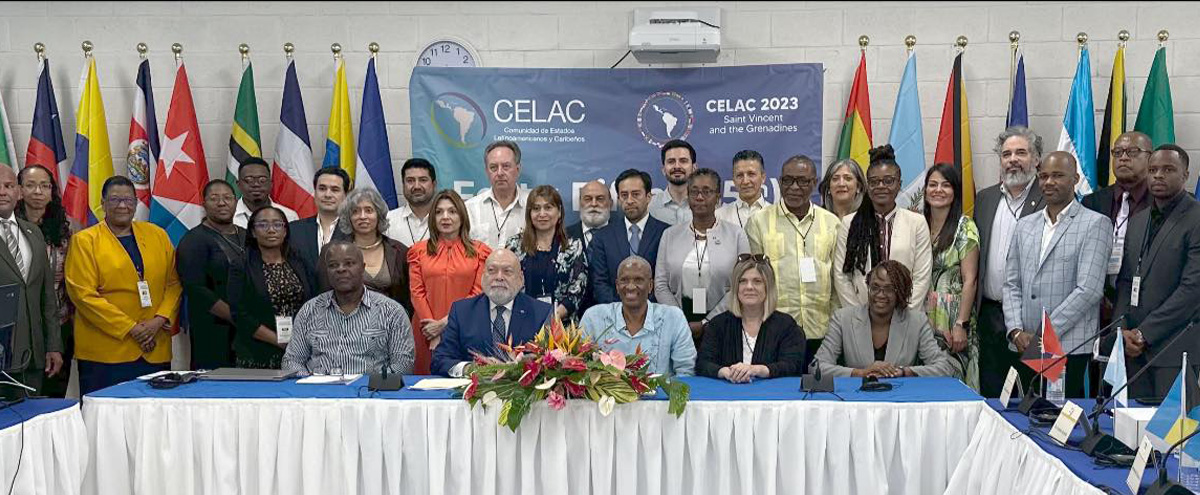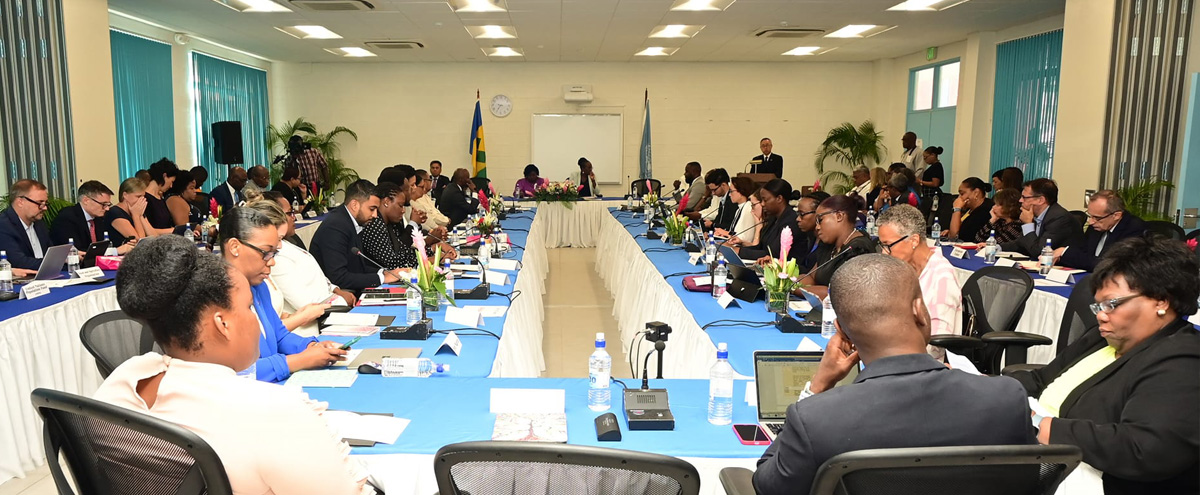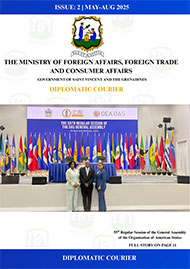
Welcome
Welcome to the website of the Ministry of Ministry of Foreign Affairs, Foreign Trade, Foreign Investment and Diaspora Affairs. The Ministry is responsible for coordinating Saint Vincent and the Grenadines' relations with foreign governments, as well as regional and international organizations. It seeks to create opportunities for Saint Vincent and the Grenadines in the field of foreign trade through the negotiation and monitoring of the relevant agreements and treaties.
Trade Facilitation also plays a very important role in enhancing trade between the Parties. The cost associated with trade facilitation however, can be onerous for CARIFORUM Governments and exporters. The EPA provides for EU cooperation in the area of customs and trade facilitation and sees these as an essential component of trade related development assistance. Vincentian exporters and importers therefore stand to benefit from the specific initiatives included in the EPA aimed at improving transparency, efficiency, integrity and accountability of customs operations. In this regard, the Agreement provides for EU development support and commitments by Customs authorities to implement international best practices, including the modernization of customs techniques, making publicly available all legislation, procedures, fees and charges and the simplification of customs procedures.
In an environment where tariffs are de-emphasised, monitoring and regulating non-tariff trade barriers assume greater importance. Our private sector and particularly the exporters and potential exporters alike, will have to keep abreast of all the technical requirements and standards which the market demands, while being wary of those who would wish to use these requirements conveniently to deny entry into markets.
This is a phenomenon which exists in the real world and trade dispute mechanisms within the WTO are replete with cases of protectionism based on these Technical Barriers to Trade (TBT). The EPA provisions with respect to Technical Barriers to Trade (TBT) and the Sanitary and Phyto-Sanitary (SPS) measures are intended to assist the under- resourced CARIFORUM Member States in equipping themselves better to meet these non-tariff market access requirements.
Given what I have outlined above, the need is for the strengthening of the capacity of our private sector to trade in goods on a competitive basis in the EU. Technical assistance, training and capacity building remain a feature of the Agreement. The challenge however, is: how do we position ourselves to benefit from these measures which are enshrined in the Agreement? I have no doubt that these questions and issues will be central to your discussions, as you seek collectively, to fashion an appropriate strategy that will serve your our own business interests and the interests of the nation as a whole.
Technical assistance will not flow automatically, therefore public sector agencies, business support organizations and individual producers and exporters must be proactive in seeking EU development support. The development cooperation aspects of the EPA are not self-initiating. The onus is on the stakeholders to determine the priorities and specify what they want.
Public and private sector promotion agencies and business support agencies need to strengthen their competencies in gathering and using market intelligence and research, so that they will become better equipped to convert the market access provided under the Agreement into effective market penetration.
Additionally, the private sector would have to explore and seek to build strategic partnership with other businesses and investors across CARIFORUM and in the EU. This can go a long way in building stronger enterprises with a greater international reach and the ability to benefit from economies of scales and meaningful contacts in major foreign markets.
In closing, I would like to wish you all a very productive consultation. The Ministry looks forward to the outcome of this consultation and to continue working with all of you to implement and take advantage of the opportunities under the EPA.
ADDRESS DELIVERED BY MINISTER OF FOREIGN AFFAIRS, FOREIGN TRADE AND CONSUMER AFFAIRS,
Dr. HON. DOUGLAS W. SLATER AT THE CARIFORUM-EU ECONOMIC PARTNERSHIP AGREEMENT (EPA)
TRADE IN GOODS CONSULTATION
Conference Room, National Insurance Services (NIS)
Kingstown, 7th March, 2012
Good morning and welcome to this national consultation on Trade in Goods under the CARIFORUM-EU Economic Partnership Agreement (EPA). The Ministry of Foreign Affairs, Foreign Trade and Consumer Affairs welcomes this opportunity to partner with the EPA Implementation Unit of the CARICOM Secretariat, to heighten awareness of the Agreement and to encourage local businesses to position themselves to take advantage of the opportunities under the EPA.
In October 1998 St. Vincent and the Grenadines along with the other members of CARIFORUM signed the EPA. This effectively signalled the end of trade with the EU under preferential terms and at the same time, a commitment by CARIFORUM to provide reciprocity to EU goods and services entering our markets.
Having committed ourselves to this Agreement and in full recognition of our obligations under international law, the Government through the Ministry of Foreign Affairs, Foreign Trade and Consumer Affairs established on the 17th October 2011, an EPA Implementation Unit. The Unit was established to assist the country in meeting its commitments under the EPA and through a programme of consultation and collaboration, to prepare the public and private sectors and Business Support Organizations to take full advantage of the opportunities under the EPA.
The EPA has been around for sometime, yet there are still questions about its usefulness to the development agenda of St. Vincent and the Grenadines and indeed of CARIFORUM member states. I view this Agreement as a platform to expand businesses by creating predictable market access. It is designed to promote economic growth and by means of joint ventures and other strategic partnerships, allows for access to EU technology and ultimately technology transfer. In essence, it provides opportunities for greater trade between the Parties.
The role of the private sector, producers of goods and services, is central to this process. The EPA is designed to deliver increased access to the markets of the participating countries on better terms than those available to others. In other words, goods produced locally can enter the European market duty free and in unlimited quantities. This applies not only to primary goods or raw materials, but also to manufactured goods.
Prior to the EPA, it was generally the case that the more value that was added to the product, the higher the rate of duty on entry. Now all exports from St. Vincent and the Grenadines to Europe are duty free. This signifies that we can export our furniture, bottle water, beer, pepper sauces and seasonings to Europe duty free, once they pass the Rules of Origin criteria. Let’s not forget that Europe begins right here in the Caribbean, in our neighbours to the north: Martinique and Guadeloupe. I have been advised that you will be hearing much more on Rules of Origin from our distinguished team of experts from CARICOM over the course of this workshop.
The flip side of the coin is that European goods can also enter the Caribbean markets duty free and herein lies the challenges of the EPA. This undoubtedly will impose some strictures on the finances of central governments, which depend to a large extent on those tax revenues that would be foregone at the ports of entry. In 1995, St. Vincent and the Grenadines joined the World Trade Organization (WTO). The rules of that organisation impose restrictions on the level of protection that countries can apply and stipulate the level of liberalization that must be achieved. CARIFORUM has succeeded in the EPA in taking those restrictions to the limit and in keeping its liberalization to the lowest possible level.
While Europe has opened its entire market to duty free entry immediately, CARIFORUM negotiated a phasing of its market opening over a 25 year period, commencing in 2008. This it is expected will give businesses sufficient time to adjust to the inevitable increased competition. The EPA Implementation Unit in the Ministry is currently working along with the Customs and Excise Department to introduce the tariff schedule that will eventually reflect the tariff rates offered in the EPA.
Speeches
- Message From Dr., The Honourable, Ralph E. Gonsalves, Prime Minister, Saint Vincent And The Grenadines To Mark The Thirty-eight (38th) Anniversary of Independence
- 72nd UNGA Statement by Minister of Foreign Affairs Sir Louis Straker
- Address To The 46th General Assembly Of The OAS by Hon. Camillo Gonsalves
- Eight Session of the WTO Ministerial Conference
- Minister's Speech


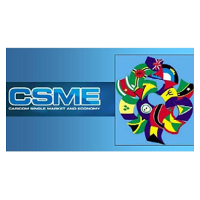
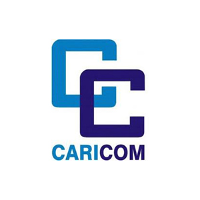
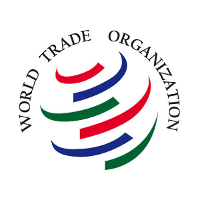
Website developed and managed by the Information Technology Services Division
Telephone: +1 784 457-1007
© 2025 Government of St Vincent and the Grenadines
